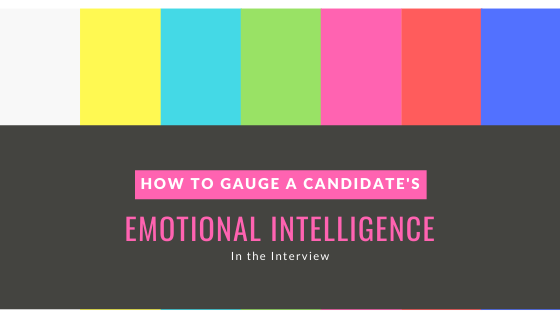
Evaluating emotional intelligence can be used as a barometer of future success. Those who have a good sense of emotional maturity and adaptability tend to succeed in architecture and design jobs. Although intelligence is still important in the workplace, hiring candidates who lack emotional maturity can lead to a toxic work environment. But finding which candidates are more emotionally intelligent than others can be challenging since it can’t be discovered on resumes, cover letters, or in portfolios. You have to gauge emotional intelligence by judging interview performance and references in more detail. Here are some additional strategies to gauge the candidate’s emotional intelligence in the interview.
Ask Open Ended Questions That Reveal a Deeper Level
Start by asking behavioral questions during the interview to understand how they have solved problems, addressed challenges, and found solutions in the past. Here are some talking points and questions to ask the candidate:
- Explain what motivates you to achieve your career goals.
- Describe a stressful work situation that you’ve experienced and how you overcame it.
- Let’s talk about workplace rapport. How do you create rapport with your colleagues?
- How do your colleagues benefit from having you on their team?
- Remember that you’re not only judging the answers that they give you, but also reading their body language while they speak.
Ask the Magic Question
Ask the candidate a question they aren’t used to hearing – “How can we help you?” Remember, the interview is a two-way street. It’s an opportunity to learn how the firm can benefit the candidate and help them achieve their goals. As a leader, I want people to learn from me and feel inspired to replace me eventually. Look for candidates who aren’t just excited about receiving a potential design job offer now, but those who are also excited about the future of your company. Understanding how you can help them grow is a great start.
What to Look For
Beware of candidates who answer your questions with short, canned answers. The most qualified people will be able to give you specific examples. Their responses should be detailed enough to prove their past work experience. Another red flag is a candidate who is quick to criticize their coworkers and supervisors. If you want to build a team of accountable employees, then you need to avoid candidates who lack self-assessment skills.
These are just some of the basic concepts to get you started. As interior design and architecture recruiters, we can help you to design and implement a more comprehensive emotional intelligence assessment going forward.
Are you looking for top talent in architecture or interior design?
Contact us to discuss how we can bring top leadership talent to your firm. David Brown International is s a global leader in executive recruiting and placement of top tier talent in Architecture, Design, and Technology. Our mission is to create a lasting legacy of success, growth, and profitability for our clients, candidates, and employees.
Are you a professional looking for a new opportunity?
Contact us to discuss your career options or browse our open positions.